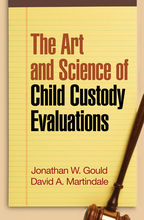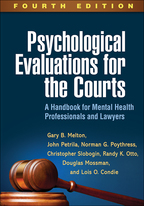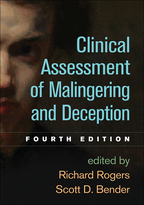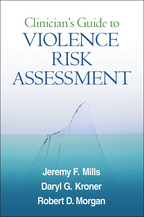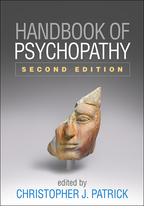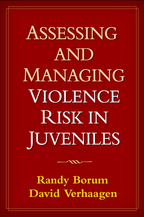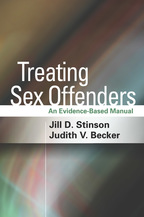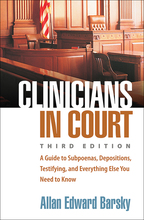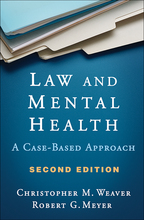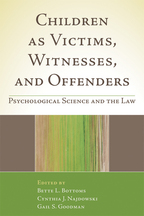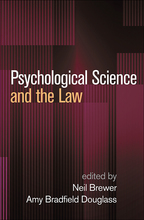The Art and Science of Child Custody Evaluations
Jonathan W. Gould and David A. Martindale
Paperbacke-bookprint + e-book
Paperback
orderJanuary 26, 2009
ISBN 9781606232613
Price: $60.00450 Pages
Size: 6" x 9"
Copyright Date: 2007
Sign up for emails on upcoming titles on Families & Couples (with special discounts)!
“Clinicians of any discipline should not be scared off by the title. Inside lies a marvelous glimpse into how the courts, and forensic psychologists, think about cases in which a divorcing couple is unable to agree upon child custody. As a child and adolescent psychiatrist, I found the chapters on family functioning and parenting behaviors particularly relevant....My consciousness has now been raised, and I find myself thinking differently as a result of Drs. Gould and Martindale's book. Also relevant to any clinician working with children are the chapters concerning the evaluation of children....Psychologists preparing to do child custody evaluations will find [this book] enormously helpful. It is clearly laid out, covers all the main areas one needs to know in order to do competent child custody evaluations, and provides references for further reading and sample letters and statements of understanding that the reader has permission to photocopy and use. In addition, child custody evaluations are anchored in a theoretical framework, that of forensic methodology, not clinical opinion....It mentions 'dos' and 'don'ts' of working with the legal system and has excellent chapters on parental alienation and how to assess allegations of child abuse or domestic violence.”

—Bulletin of the Menninger Clinic
“The authors demonstrate their comprehensive knowledge of the research associated with many of the issues and factors commonly evaluated....Serves as a valuable resource to the skilled professional while offering a thorough overview to those considering entering the family forensic field.”

—Psychiatric Services
“Gould and Martindale have given mental health professionals a thoughtful, thorough, and impressively evidence-based overview of the what, how, and why of child custody evaluations. I want separated parents to decide what's best for their own children, but when they can't or won't, I urge custody evaluators to follow Gould and Martindale's careful advice. This book should be read by students and professionals not only for the information it offers, but also for its cautions—ethical, practical, and human.”

—Robert E. Emery, PhD, Department of Psychology and Center for Children, Families, and the Law, University of Virginia
“A groundbreaking book by Gould and Martindale. Their expertise provides the reader with a comprehensive guide to building the best possible child custody evaluations, with a thorough examination of issues such as minimizing and correcting for an evaluator's bias and assessing allegations of domestic violence, sexual abuse, and alienation. An exquisite work by two of the field's most brilliant forensic experts!”

—Leslie M. Drozd, PhD, Editor, Journal of Child Custody
“The past decade has seen a sea change in custody evaluations, from impressionistic interviews and 'clinical wisdom' to systematic evaluations and data-based findings. In this extraordinarily clear and well-written book, Gould and Martindale explain key forensic methods of custody evaluation, laying bare their foundations and showing how to apply them to everyday work. The book is simultaneously a manifesto for the new era of custody evaluations and a handbook for those who perform them. It is a fine starting point for graduate students in forensic psychology, fellows in forensic psychiatry, and mental health professionals entering the field of custody evaluation, and will also help the most experienced evaluators refine their thinking. The emphasis on risk management should help evaluators minimize the formal complaints that are the bane of their existence. Judges and lawyers will appreciate the book's authoritative, jargon-free exposition.”

—Robert M. Galatzer-Levy, MD, Department of Psychiatry, University of Chicago, and Chicago Institute for Psychoanalysis
—Bulletin of the Menninger Clinic
“The authors demonstrate their comprehensive knowledge of the research associated with many of the issues and factors commonly evaluated....Serves as a valuable resource to the skilled professional while offering a thorough overview to those considering entering the family forensic field.”
—Psychiatric Services
“Gould and Martindale have given mental health professionals a thoughtful, thorough, and impressively evidence-based overview of the what, how, and why of child custody evaluations. I want separated parents to decide what's best for their own children, but when they can't or won't, I urge custody evaluators to follow Gould and Martindale's careful advice. This book should be read by students and professionals not only for the information it offers, but also for its cautions—ethical, practical, and human.”
—Robert E. Emery, PhD, Department of Psychology and Center for Children, Families, and the Law, University of Virginia
“A groundbreaking book by Gould and Martindale. Their expertise provides the reader with a comprehensive guide to building the best possible child custody evaluations, with a thorough examination of issues such as minimizing and correcting for an evaluator's bias and assessing allegations of domestic violence, sexual abuse, and alienation. An exquisite work by two of the field's most brilliant forensic experts!”
—Leslie M. Drozd, PhD, Editor, Journal of Child Custody
“The past decade has seen a sea change in custody evaluations, from impressionistic interviews and 'clinical wisdom' to systematic evaluations and data-based findings. In this extraordinarily clear and well-written book, Gould and Martindale explain key forensic methods of custody evaluation, laying bare their foundations and showing how to apply them to everyday work. The book is simultaneously a manifesto for the new era of custody evaluations and a handbook for those who perform them. It is a fine starting point for graduate students in forensic psychology, fellows in forensic psychiatry, and mental health professionals entering the field of custody evaluation, and will also help the most experienced evaluators refine their thinking. The emphasis on risk management should help evaluators minimize the formal complaints that are the bane of their existence. Judges and lawyers will appreciate the book's authoritative, jargon-free exposition.”
—Robert M. Galatzer-Levy, MD, Department of Psychiatry, University of Chicago, and Chicago Institute for Psychoanalysis

